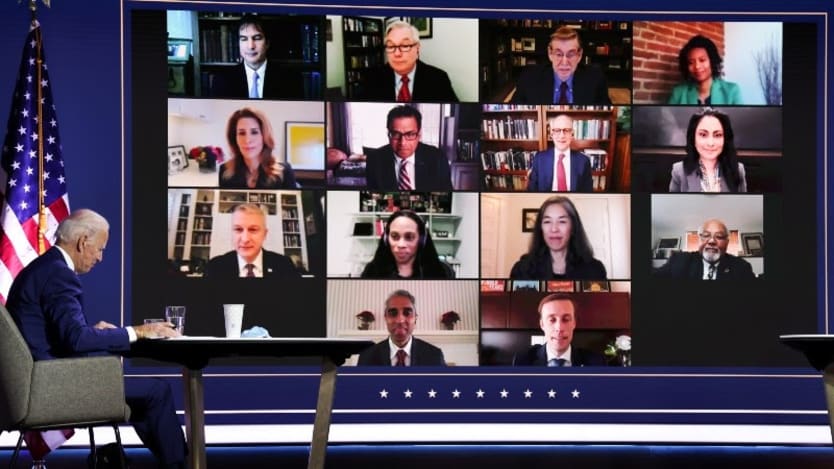
Given so much focus on the COVID-19 pandemic and politics in the U.S., we have hardly taken a moment to consider what comes next. Surely, both will have a profound effect on how we tackle global health priorities after this year. Our strategies and systems have been tested in unprecedented ways, prompting us to ask ourselves how we rebuild and recover. President-elect Joe Biden has cautioned us against business as usual.
So what does that mean in the wake of an ongoing health emergency? Of course, we have long since known what it would take to fight an outbreak like COVID-19.
There is also little question of the value of political leadership. This doesn’t just fall to the White House but also to members of Congress, a new crop of whom will be welcomed in January. The reality is both have fallen short in recent months — from attacks on the World Health Organization to limited emergency pandemic response funding for global programs. Despite the urgency, advocates have been hard-pressed to bring U.S. political leaders fully on board with our cause.
Largely, champions and their constituents are driven by messaging, and ours has relied on the same triad for a while: morality, economy, and security. In other words, we have repeated the mantra that investing in global health is the right and smart thing to do because of how it benefits America’s stability and bottom line.
5 Trump-era global health policies a Biden administration might undo
Politics have significantly impacted a number of U.S. global health policies. Here are some that will likely be changed when Joe Biden takes office as president.
Of course, this makes political sense and might still hold value in the coming months. Yet we’ve arguably only been playing to a limited cohort of officials and potential supporters using that narrative. With domestic needs looming and various issues clamoring for attention, we should be broad in our message and pull in new champions inspired by another set of principles. Here’s what I propose:
Equity
Access to health is a global rallying cry that resonates just as much in many American communities as it does abroad. Moreover, health disparities are just as universal. Linking these global and local realities and talking points is a missed opportunity, and it is high time we leveraged and led with this in our advocacy.
We talk about how the pandemic affects local companies or economies and why business leaders should therefore care about global health. Why not use the same logic with local health workers or families and make a case for global health because of its ripple effects on neighborhood health services or outcomes? Let’s redefine health security in a way that focuses less on profits and more on people.
Democracy
The democratic process has been a conspicuous flashpoint in America this year, taking up space in both public and political debates. Thankfully, global health has a natural entry point here as well.
Just look at how initiatives engage civil society to deliver lifesaving results. Without people power, fewer children around the world would have access to nutrition and vaccines, individuals living with HIV would have limited options for survival and support, and Big Tobacco might have an even greater footprint in low-income countries. Amid a push for engagement and inclusion, political leaders can count on global health actors to share their ideals and to serve as a demonstration of how the U.S. advances these efforts.
With COVID-19 raging globally, WHO under threat, and other priorities falling by the wayside, we simply cannot rely on the status quo.
—Humanity
Too often, we forget the faces and voices behind our arguments. Justice should be less about what we are protecting and more about who benefits from any decision.
Of course, no one wants the global economy to languish. But preventing poverty within countries or communities worldwide seems just as important as focusing on prevailing market factors or trends.
Similarly, while political stability is critically important for governments, so is personal safety. One needn’t look further than increasing rates of gender-based violence during the pandemic to understand the toll global health emergencies can take on people inside a nation’s borders, regardless of who or what is kept out.
Ideally, our actions are not primarily motivated by protecting us from them — a concept with less traction as the shortcomings of “othering” become more glaring. Instead of the typical moral argument, this tactic is centered less on what we as Americans should do for others. Rather, it emphasizes what people fundamentally deserve.
Why is this relevant on the heels of a U.S. election? Because new leadership at such a pivotal time requires novel perspectives. The only way we’ll truly “build back better” is to offer incoming policymakers at the federal and congressional levels what they need to take meaningful steps toward protecting and advancing global health, by aligning with today’s realities.
With COVID-19 raging globally, WHO under threat, and other priorities falling by the wayside, we simply cannot rely on the status quo. We must find greater common ground with different players and topics that will work together toward the same goal.








